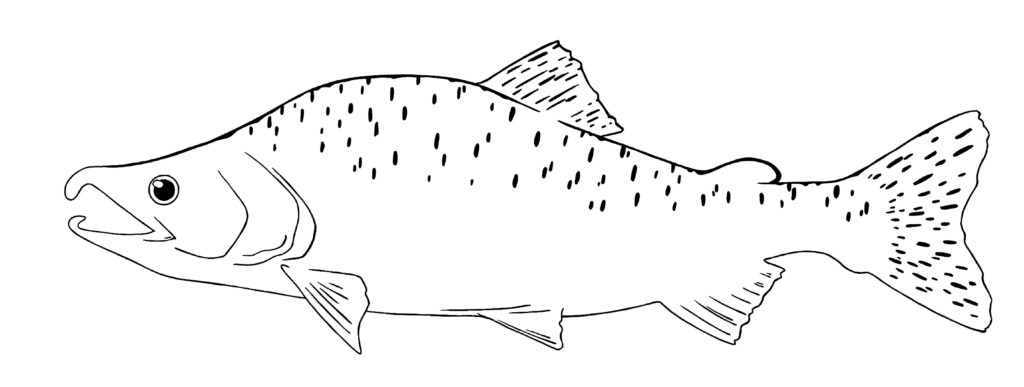Data Sovereignty & Monitoring App
“Data is not just numbers; it is the voice, history, and aspirations of Indigenous communities. Through data sovereignty, we can empower communities to shape their narratives, honor their knowledge, and transform their future.”
– Native Analytics
DATA SOVEREIGNTY
Tribal governing entities require reliable, relevant, and current data to make sensible policy decisions. A series of legal instruments have been developed to inform, operationalize, and protect Indigenous Peoples rights to Free, Prior and Informed Consent (FPIC) – a specific right that pertains to Indigenous Peoples. FPIC is recognised in the United Nations Declaration on the Rights of Indigenous Peoples (UNDRIP) and reaffirms and asserts Indigenous Peoples’ rights to self governance and self-determination over their collection, use, and ownership of data (UNDRIP 2007). These principles, coupled with the universal right to self-determination, are the foundation to give and withhold consent to participate in research, science, and other projects, promote equitable participation, and protect Indigenous knowledge.
We operate under and uphold the CARE (Collective Benefit, Authority to Control, Responsibility Ethics) Principles and FAIR (Findable, Accessible, Interoperable, and Reproducible) Principles to strengthen Indigenous data sovereignty in our region. The CARE principles for Indigenous Data Governance complement the more data-centric approach of the FAIR principles, introducing social responsibility to open data management practices.





SIGN Data Stewardship Principles & Values
Respect
We recognize Indigenous self-determination and community autonomy to decide what is best for their tribal citizens. This includes respecting and uplifting Indigenous Knowledge, data sovereignty, and intellectual property rights.
Self-Determination
Tribal communities and Guardians Programs operate under self-determination to mobilize knowledge, monitoring, data collection, research, education and environmental stewardship.
Integrity & Safety
Utilizing real names and real data, including use and application of traditional place-names, is critically important for safe travel, knowledge transfer, language and cultural preservation.
Improve data literacy
Creating, interpreting and communicating data in a culturally-informed and grounded way are skills we aim to support. Armed with data literacy, we can strengthen decision-making and advocate for individual and collective needs more emphatically and uphold relational accountability.
Harness the power of collective wisdom
We honor co-learning and aim to build connections for common data goals. Each of us has gifts and perspectives to contribute to shaping our collective future. This sense of collective wisdom and shared responsibility is what will drive our long-term data stewardship.
Honor Narratives & Numbers
Data does not supersede our oral histories and community stories. Our community and individual narratives add color, context, and emotion to the raw numbers. Numbers can lend scale, precision, and objectivity to our stories.





About the App
SIGN has partnered with the Indigenous Sentinels Network (ISN), whose mission is to support the collection of Indigenous, Traditional and Local knowledges (ITLK) and scientific information to empower ecosystem- and community-centered natural resource management and decision-making at multiple levels (i.e. generate actionable data along-side creative and broad reaching science communication). ISN is one environmental monitoring network that operationalizes Indigenous Data Sovereignty through practices of Indigenous Data Governance as “the enactment of Indigenous Data Sovereignty referring to the mechanisms that support Indigenous decision-making on how data are controlled, collected, interpreted, accessed, stored, and used” (Walter et al. 2020).
SIGN’s partnership with ISN has resulted in a SIGN-specific database that features customizable data collection survey forms, audio recording capabilities, and reporting, where our SIGN tribal partners will be able to collect and store data while retaining sovereignty over the data they collect. ISN has over 20 years of experience in Tribal environmental monitoring, data collection, and development of tribally owned environmental monitoring software. ISN remains grounded in goals to rebuild sovereign capacity for the stewardship of lands and waters. ISN has partnered with SIGN, as administered by Central Council of Tlingit & Haida Indian Tribes of Alaska (Tlingit & Haida), to bring ISN-SIGN Database architecture, data collection methodology, training and capacity building to Southeast Alaska.
Seacoast Indigenous Guardians Network Policy for Protection of User Data and Privacy
Indigenous data governance is “the entitlement to determine how Indigenous data is governed and stewarded” (Rainie et al. 2019).
The Seacoast Indigenous Guardians Network maintains appropriate administrative, physical, and technical safeguards for the protection of the security, confidentiality, and integrity of User Data. SIGN and our hosting partner the Indigenous Sentinels Network maintain multiple copies of User Data and/or backup of User data in accordance with SIGN policies and procedures with the goal of 100% availability. SIGN shall not: (a) modify User Data, (b) disclose User Data except as expressly permitted in writing by the User, or (c) access User Data except to provide the services and prevent or address service or technical problems, or at User request in connection with technical support matters.
Account Deletion is initiated by clicking a button in the Settings section of each app to initiate the process for deleting a user’s entire account record and associated personal data from an Indigenous Sentinel Network app program. The account deletion process is done manually and takes approximately one week and users are informed when the process is completed. SIGN ISN administrators may request that users reply to an email message to verify that they have actually initiated the process on purpose. Under some special circumstances, users may be contacted by an SIGN or ISN representative.
Any and all use of your data will be kept anonymous during reporting of results. Identifying information will not appear in any deliverable resulting from the SIGN-ISN Partnership. If there are additional potential uses of data, the SIGN team will explicitly request your permission and will not use or share data unless you explicitly grant permission.
If you have any questions about use, retention, or data collection protocols, please email us seacoastign@tlingitandhaida.gov.
Resources


